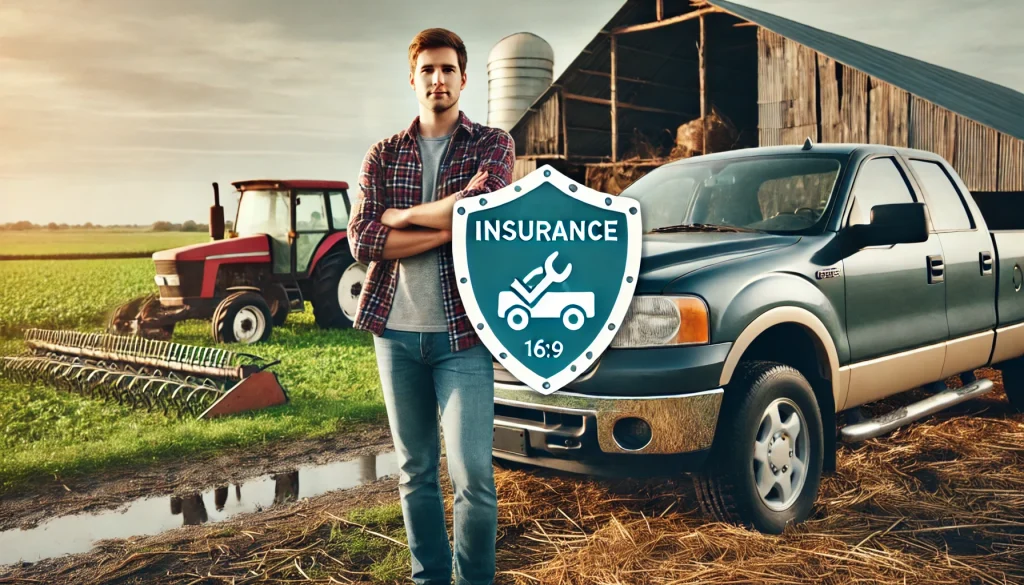Farmers Automobile Insurance
Farmers are the backbone of agriculture, and their vehicles are critical to their livelihood. From hauling equipment to transporting produce, these vehicles do more than just drive—they’re essential tools for work. Protecting them with the right insurance ensures that operations run smoothly, even in the face of unexpected events. This article dives into the details of farmers automobile insurance, helping you understand why it’s important, what coverage options are available, and how to choose the best policy for your unique needs. Whether you operate a small family farm or a large commercial operation, this guide will provide the insights you need to safeguard your investments and ensure peace of mind.
What Is Farmers Automobile Insurance?
Farmers automobile insurance is a specialized type of auto insurance designed for vehicles primarily used in agricultural operations. Unlike standard auto insurance, which focuses on personal vehicles for everyday commuting, this type of policy accounts for the unique risks associated with farming activities. These risks can include transporting heavy equipment, navigating rural roads, or driving vehicles exclusively on private farmland.
Farmers automobile insurance often covers a variety of vehicles, such as pickup trucks, ATVs, trailers, and even larger farm-use machinery. Policies typically offer a combination of liability, collision, and comprehensive coverage tailored to the needs of farmers. By addressing risks specific to farming, these policies provide essential protection against financial losses due to accidents, damage, or theft.
For example, a standard auto insurance policy may not cover a trailer hauling farm equipment if it’s damaged during transportation. However, with the right farmers automobile insurance policy, you can ensure that both the vehicle and the equipment are protected. This tailored approach makes these policies indispensable for those in agriculture.
Why Is Specialized Insurance Necessary for Farmers?
The nature of farming involves unique challenges and risks that standard auto insurance policies are not designed to address. Here’s why specialized insurance is essential:
1. Multifunctional Vehicle Use: Farm vehicles are not just for commuting; they are often used to tow trailers, transport livestock, or carry heavy loads. These activities increase the risk of accidents and equipment damage.
2. Rural and Off-Road Driving: Farmers frequently navigate unpaved roads, fields, and rugged terrain. These conditions can lead to vehicle wear and tear or collisions that standard policies may not cover.
3. Higher Liability Risks: Activities like transporting large equipment or operating near public roads can lead to accidents involving third parties. Specialized policies offer higher liability limits to address these risks.
4. Seasonal Use: Many farm vehicles are used only during planting or harvest seasons. Farmers automobile insurance policies often allow for seasonal adjustments, ensuring you’re not paying for coverage you don’t need year-round.
By understanding these unique needs, insurers can provide policies that offer comprehensive protection for all aspects of farm vehicle use.
Key Coverage Options for Farmers Automobile Insurance
Farmers automobile insurance policies include a range of coverage options designed to protect vehicles and their operators from various risks. Here’s a breakdown of the most important coverage types:
Liability Coverage: This is the foundation of any automobile insurance policy. It covers the costs of damages or injuries caused to others in an accident where you are at fault. For farmers, higher liability limits are often recommended due to the potential risks associated with equipment transport or livestock hauling.
Collision Coverage: This protects your vehicle if it’s damaged in an accident, regardless of who is at fault. Whether you’re driving on a busy highway or through a rugged field, this coverage ensures your repair costs are covered.
Comprehensive Coverage: This type of insurance covers non-collision-related damages, such as theft, vandalism, or weather-related incidents. For farm vehicles that are often exposed to the elements, comprehensive coverage is a must.
Equipment and Trailer Coverage: Many policies offer optional endorsements to cover trailers or equipment being transported. This is especially important for farmers who frequently haul machinery or livestock.
Uninsured/Underinsured Motorist Coverage: This protects you in the event of an accident with a driver who lacks sufficient insurance. Given the prevalence of uninsured drivers in rural areas, this coverage provides added peace of mind.
These coverage options ensure that all aspects of your farm’s vehicle operations are protected, minimizing financial risks and disruptions to your work.
How to Choose the Right Policy
Choosing the right farmers automobile insurance policy requires careful consideration of your specific needs. Here are the steps to guide your decision-making process:
1. Assess Your Needs: Start by evaluating how each vehicle is used. Are they exclusively for farm operations, or do they also serve personal purposes? Understanding the primary use of each vehicle helps determine the type and level of coverage needed.
2. Evaluate Risk Factors: Consider the risks unique to your farm. For instance, if you frequently transport equipment or livestock, ensure your policy includes sufficient liability and equipment coverage.
3. Compare Providers: Look for insurers experienced in agricultural policies. Local providers often understand the specific challenges farmers face and can offer tailored solutions.
4. Check for Discounts: Many insurers provide discounts for bundling farmers automobile insurance with other policies, such as farm property or crop insurance.
5. Read the Fine Print: Ensure you understand the terms of your policy, including coverage limits, exclusions, and deductibles. If you’re unsure about any details, ask your insurance agent for clarification.
By following these steps, you can secure a policy that provides comprehensive protection at a reasonable cost.
Tips for Reducing Insurance Costs
While farmers automobile insurance is essential, managing costs is equally important. Here are some tips to save on your policy:
1. Bundle Policies: Combining auto insurance with other policies, such as home or equipment insurance, often leads to significant discounts.
2. Choose a Higher Deductible: Opting for a higher deductible reduces your premium, but ensure you can afford the out-of-pocket costs if you need to file a claim.
3. Maintain a Clean Driving Record: Safe driving minimizes risks and qualifies you for lower premiums.
4. Use Seasonal Coverage: If certain vehicles are only used during specific times of the year, seasonal policies can help reduce costs.
5. Regularly Compare Quotes: Shopping around ensures you’re getting the best rate for the coverage you need.
Implementing these strategies can help you balance comprehensive protection with affordability.
Benefits of Farmers Automobile Insurance
Investing in farmers automobile insurance offers numerous advantages:
1. Comprehensive Protection: Tailored policies provide coverage for a wide range of risks, from accidents to weather-related damages.
2. Financial Security: With the right coverage, you can avoid significant out-of-pocket expenses for repairs, liability claims, or equipment replacement.
3. Peace of Mind: Knowing your vehicles are protected allows you to focus on running your farm without constant worry about potential risks.
4. Operational Continuity: Quick claims processing ensures minimal disruption to your farm’s operations in the event of an accident or loss.
FAQs
1. What types of vehicles are covered under farmers automobile insurance?
Farmers automobile insurance typically covers trucks, trailers, ATVs, and other vehicles used for farming operations. Personal-use vehicles may require separate policies.
2. Is farmers automobile insurance more expensive than standard policies?
It can be, due to the specialized coverage required. However, discounts and bundling options help offset costs.
3. Can I get seasonal coverage for farm vehicles?
Yes, many insurers offer policies tailored to vehicles used only during specific seasons, such as planting or harvest.
4. How do I choose the best provider for farmers automobile insurance?
Look for insurers experienced in agricultural needs. Local providers often offer tailored policies and personalized support.
5. What additional coverage options should farmers consider?
Consider equipment and trailer coverage, uninsured motorist protection, and higher liability limits based on your farm’s specific operations.






